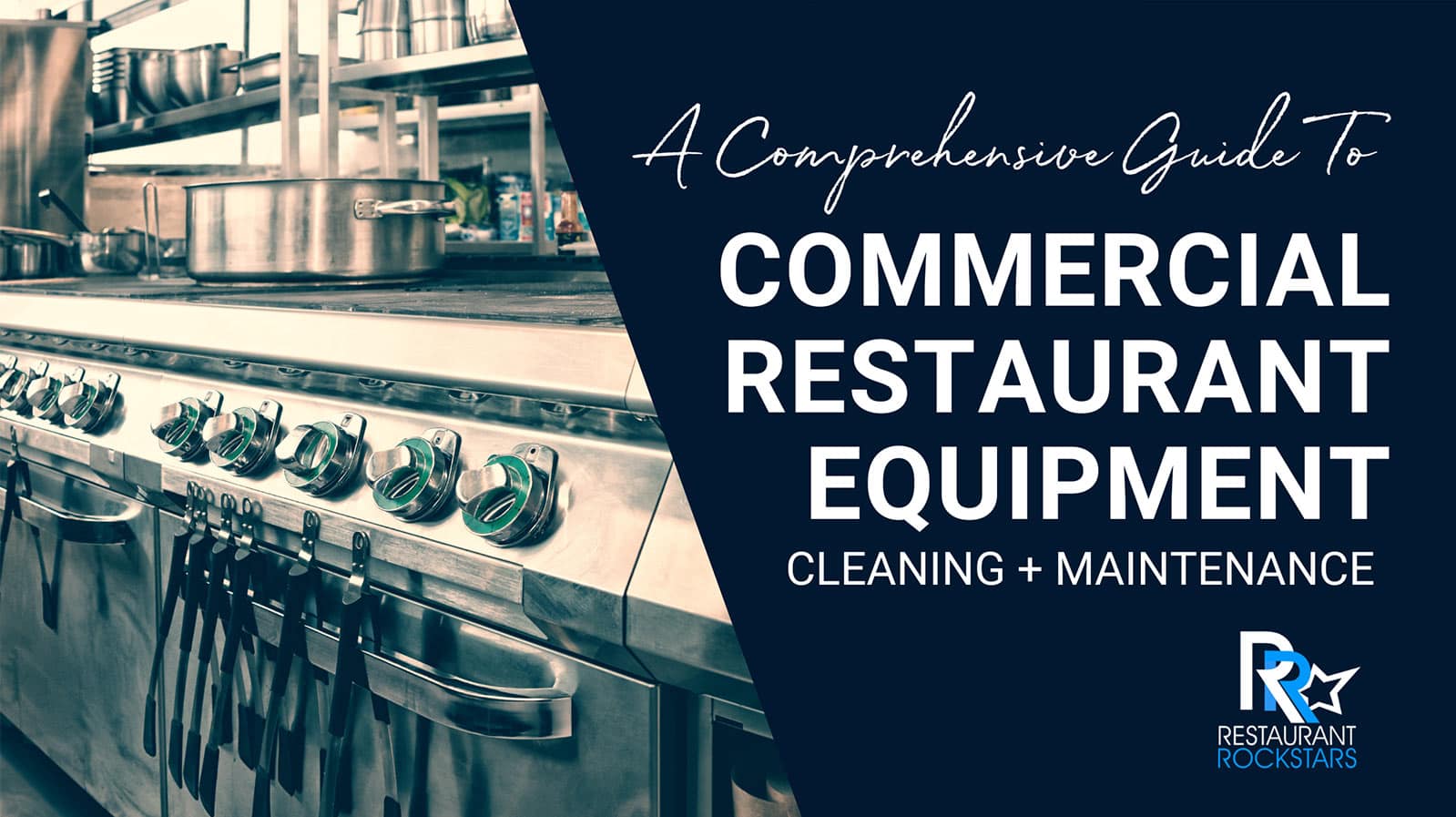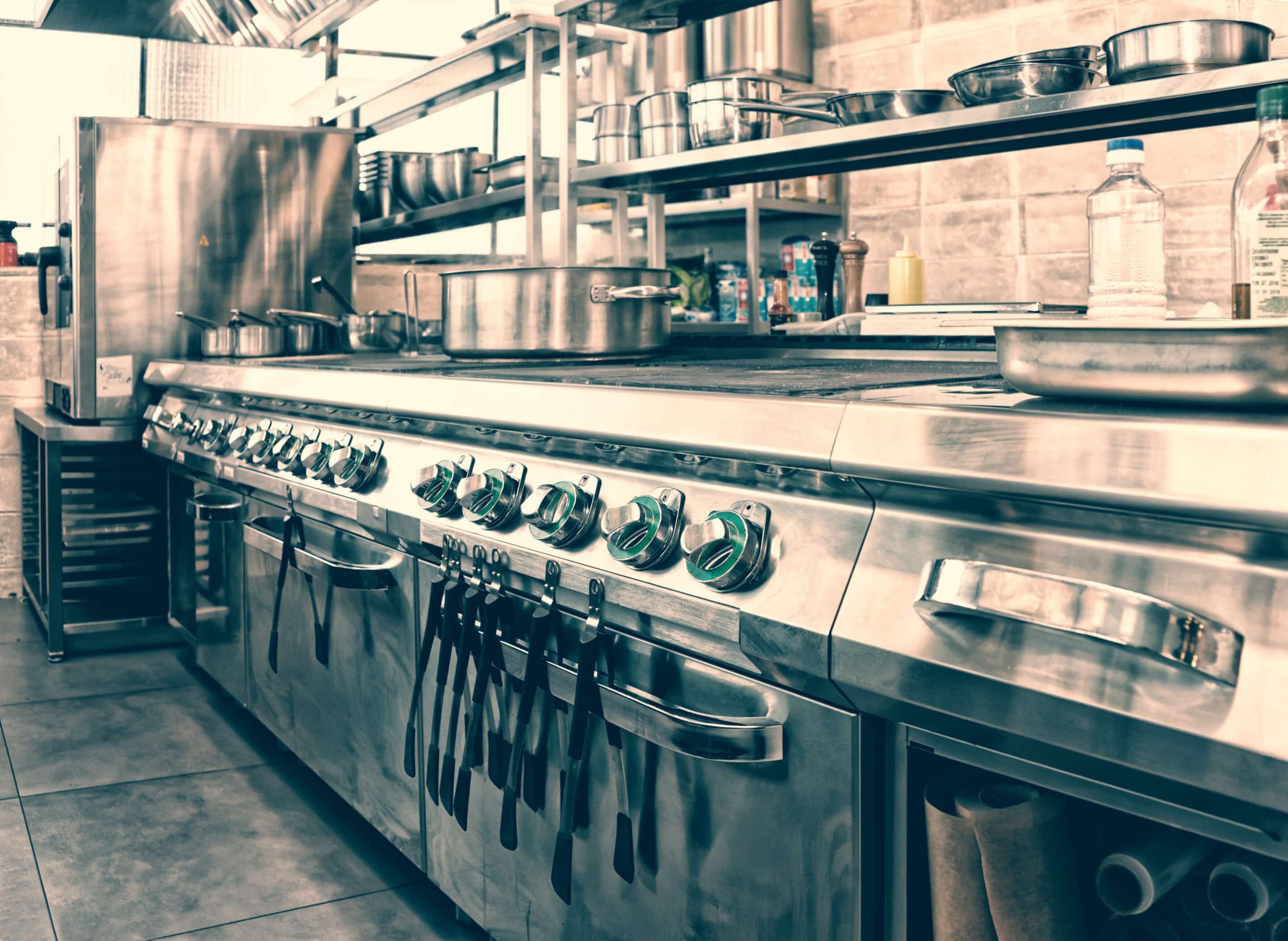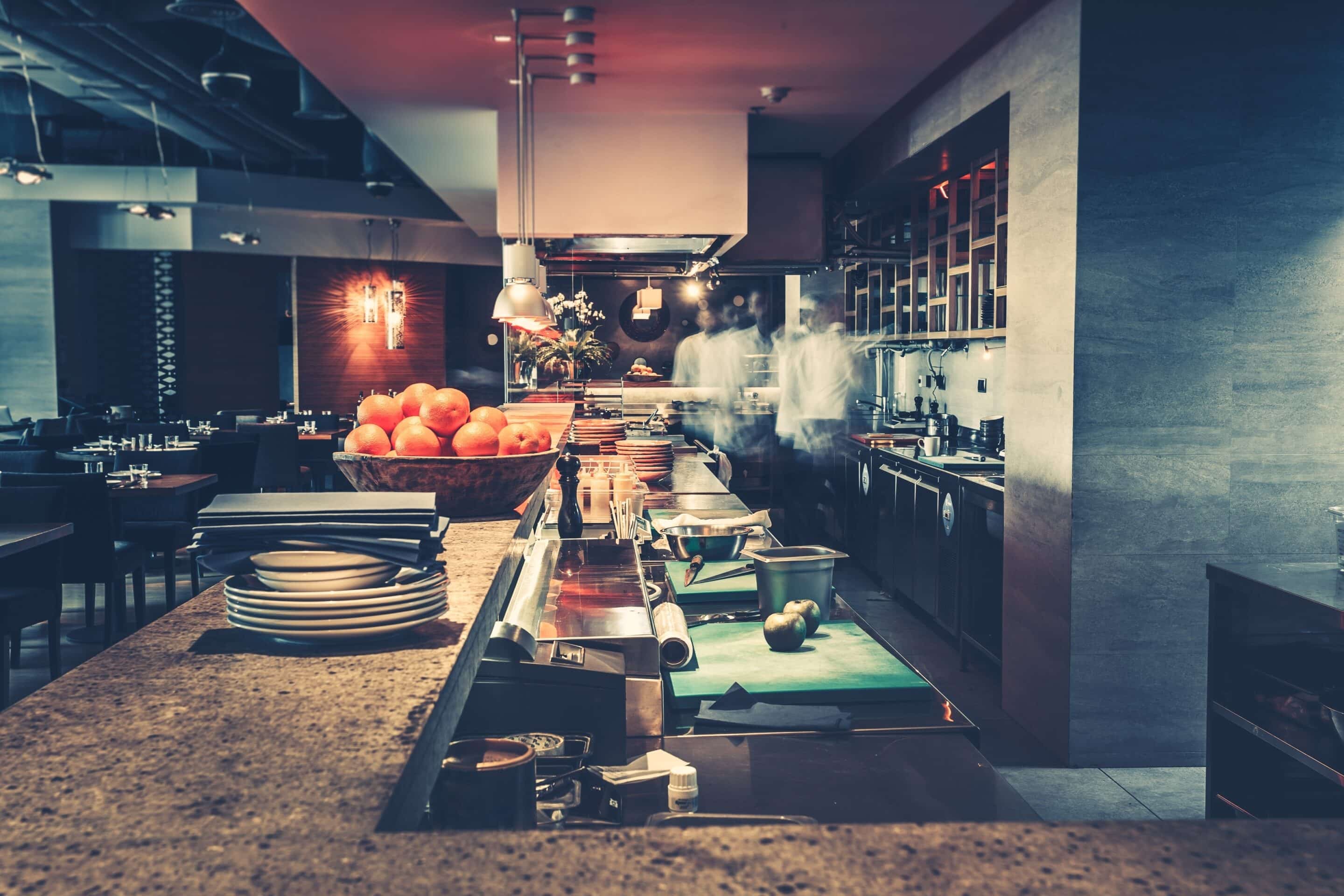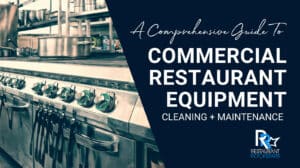
Guide to Cleaning + Maintaining Restaurant Equipment
Understanding Commercial Restaurant Equipment
Commercial restaurant equipment is a broad term that encapsulates a variety of machinery and tools used in a commercial kitchen. These could include appliances like stoves, ovens, fryers, grills, refrigerators, and dishwashers, among other specialty equipment. This equipment is specifically designed to withstand heavy use in a busy kitchen environment and often comes with features that aid efficiency and productivity.
The Importance of Regular Maintenance
Maintenance plays a crucial role in the lifespan and efficiency of commercial restaurant equipment. Without regular maintenance, equipment can degrade quickly, leading to costly repairs and replacements.
- Prolongs Equipment Lifespan: Regular maintenance reduces the risk of equipment malfunction, thus extending its lifespan.
- Improves Efficiency: Well-maintained equipment performs at optimal levels, increasing kitchen productivity and decreasing energy consumption.
- Ensures Safety: Regular inspections can catch potential hazards, preventing accidents and ensuring a safe working environment.
- Reduces Cost: By catching minor issues before they escalate, regular maintenance can save significant repair or replacement costs.

Daily Cleaning: An Essential Routine
Maintaining the cleanliness of commercial restaurant equipment isn’t merely about appearances; it’s a matter of safety, efficiency, and quality control. Daily cleaning can significantly extend the lifespan of your equipment and ensure a clean, hygienic kitchen.
Steps for Daily Cleaning
- Turn Off and Unplug: Before cleaning any piece of equipment, ensure it’s switched off and unplugged.
- Remove Removable Parts: Detach any removable components, such as grates, trays, or filters.
- Clean with Suitable Cleaner: Use a cleaner suitable for the material of the equipment and scrub off any residue or food particles.
- Rinse and Dry: Rinse off the cleaner and thoroughly dry the equipment to prevent moisture-related issues.
- Reassemble: Put the equipment back together, ensuring all parts are correctly reinstalled.
Deep Cleaning: An Occasional Must-Do
Deep cleaning goes beyond daily restaurant cleaning checklists to address areas that are hard to reach or more susceptible to long-term buildup. This should be done at least once a month, or more frequently depending on the use of the equipment.
Steps for Deep Cleaning
- Disconnect: Unplug the equipment and, where applicable, disconnect gas lines under professional supervision.
- Dismantle: Take apart the equipment as much as possible to expose hidden areas.
- Use Industrial-Grade Cleaners: Use powerful cleaners to dissolve stubborn residue and buildup.
- Scrub: Use brushes or scrubbing tools to remove stubborn grime.
- Rinse and Dry: Rinse thoroughly to remove all cleaner residues, and dry the equipment completely.
- Reassemble and Reconnect: Put the equipment back together and reconnect any disconnected lines, ensuring to do this safely.
Professional Maintenance and Servicing
Even with rigorous daily and deep cleaning, commercial restaurant equipment can benefit from professional maintenance. Professionals can identify and fix issues that may not be apparent, ensuring your equipment runs efficiently and safely.
Implementing a Maintenance Schedule
An organized maintenance schedule can be the difference between chaotic kitchen operations and seamless productivity. Instituting a routine can make the task of maintaining commercial restaurant equipment less overwhelming and more manageable.
Creating a Daily, Weekly, and Monthly Schedule
- Daily: Basic cleaning tasks, such as wiping down equipment surfaces and removing any food debris, should be performed daily.
- Weekly: More in-depth cleaning, such as cleaning fryer vats, ovens, and grills, can be slotted for weekly routines.
- Monthly: Deep cleaning, which involves breaking down the equipment to clean hard-to-reach areas, should be conducted at least once a month.
Remember, the frequency of these tasks may vary depending on the type of equipment and its usage.

Training Staff on Proper Cleaning and Maintenance Procedures
Training your staff is paramount to maintaining your restaurant equipment effectively. Informed and trained employees will understand the importance of their role in maintaining the machinery and, therefore, contribute to its extended lifespan.
Aspects of Effective Training
- Understanding the Equipment: Employees should understand the functionality and intricacies of each piece of equipment they’re assigned to.
- Knowing the Cleaning Agents: Staff should know which cleaning agents to use for each piece of equipment to avoid causing damage.
- Safety Measures: Emphasize the importance of safety measures like unplugging equipment before cleaning to prevent accidents.
- Timely Reporting: Encourage employees to report any irregularities in equipment performance for prompt attention.
Recognizing When to Call in Professionals
While daily cleaning and maintenance can be handled in-house, some situations call for professional help. Recognizing these signs can prevent further damage and hefty repair costs.
Signs You Need Professional Help
Persistent Malfunctions: If a piece of equipment is consistently failing or underperforming despite regular cleaning and maintenance, it’s time to call in the experts.
- Strange Noises: Unusual noises can be a sign of underlying issues that require professional attention.
- Inefficiency: If you notice a significant increase in energy consumption or decrease in output, it may be time for a professional inspection.
- Aging Equipment: As equipment ages, it requires more attention and care. Regular check-ups by a professional can help prolong its lifespan and ensure it remains efficient.
Conclusion
Regular maintenance and cleaning of commercial restaurant equipment is not just a crucial aspect of running a successful restaurant, but it’s also a significant investment in your business’s future. By following this extensive guide, you can ensure your equipment stays in top shape, operates at peak efficiency, and lasts as long as possible. Remember, it’s all about regular cleaning, timely professional check-ups, and fostering a culture of care and respect towards the equipment among your staff. Let this be your secret recipe for a successful and smoothly-operating kitchen.
Post Contribution: Peter Yordanov, Kitchenall.com

The three costly mistakes you could unknowingly be making?
Find out in this FREE guide and restaurant assessment specifically designed to reveal the unexpected hurdles standing between you and exponential business growth.
The Restaurant Academy
Open & run your restaurant the smart way
What if you had the strategies and tools to maximize your profits and run a wildly successful restaurant?
You could finally stop flying by the seat of your pants and grow your restaurant with next-level confidence.
Only $59 per month. 30 day money-back guarantee.


Listen. Learn. Prosper.
The Restaurant Rockstars Podcast
Engaging conversations with industry leaders and fellow restaurateurs who spill the beans on their tips, tricks, and best-kept secrets to help you rock YOUR restaurant.
Don't forget to subscribe to the Restaurant Rockstars podcast on your favorite podcast platform and never miss an episode.







